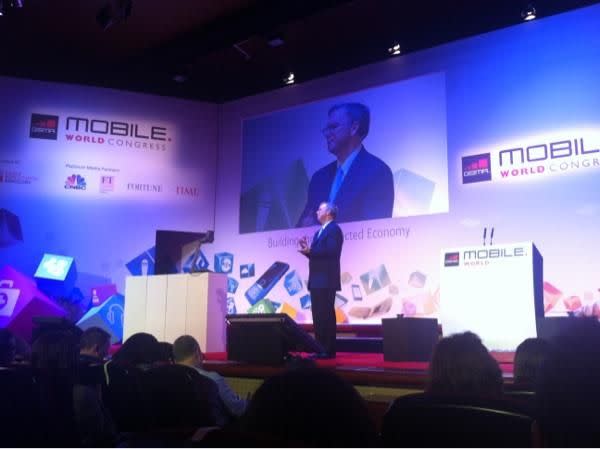Google wanted to create a Google Bucks currency

Once upon a time, Google considered the possibility of creating its own currency called Google Bucks, much to the likes of the Bitcoin cash system. The statement came after Eric Schmidt, Google’s chairman, announced his keynote speech at Mobile World Congress in Barcelona on Tuesday.
The concept originally consisted of a “peer-to-peer” money system by which users can seamlessly transfer cash to each other via a hypothetical application. However, the project was eventually nixed because of the various laws about currency in different parts of the world which would deem the system illegal. The concept would also make it easier for potential money laundering scandals.
“Ultimately we decided we didn’t want to get into that because of these issues,” Schmidt said.
With the recent Google Wallet hack, it seems unclear whether Google should continue to venture into the money market. While the company claims the security issues have been resolved, once you have something as important as your bank account become vulnerable to attacks, it’s hard to trust your information with the same program again. Google even has a “bug bounty” program to ask hackers and developers to report security holes in Gmail, Google Docs, Chrome web browser among other company products. The program pays those who’ve helped report significant issues and have spent at least $700,000 in rewards. Google has even hired some of these developers to help fix the hacks. While the company is considering expanding the bug bounty program to allow people to report hacks on Google.com, the search homepage, and YouTube, there are no mentions of allowing the public to help make Google Wallet safer.
If you’re still interested in mobile banking and money transferring, you may want to consider options available across the globe while the United States continue to make the system more dependable. Aside from using your personal banks’ official apps, which limits free money transfers between accounts under the same bank, United Kingdom bank Barclays is working on a countrywide version of its Pingit app that will allow users above the age of 18 to link their bank accounts to their mobile phones. Users will be able to transfer funds up to £300, or approximately $478, to each other just by texting the recipient’s cell phone number. Other applications in the UK have started to come out to rival Pingit, making mobile banking much more popular there than it currently is in America.
In Kenya, a system called M-Pesa lets people perform bank transactions without having to visit their local bank branch. M-Pesa users can also transfer money, pay bills, and purchase cellphone airtime with the system. In a country like Kenya, allowing people the convenience of not carry physical bank notes help reduce the physical danger of carrying large sums of cash.
With mobile banking successful through other parts of the world, we can only wonder when America will have its own reliable web currency system.
This article was originally posted on Digital Trends
More from Digital Trends
The NFC evolution: Getting closer to mobile wallets
$2 billion Azerbaijan Tower to usurp Saudi Arabia’s Kingdom Tower as world’s tallest

